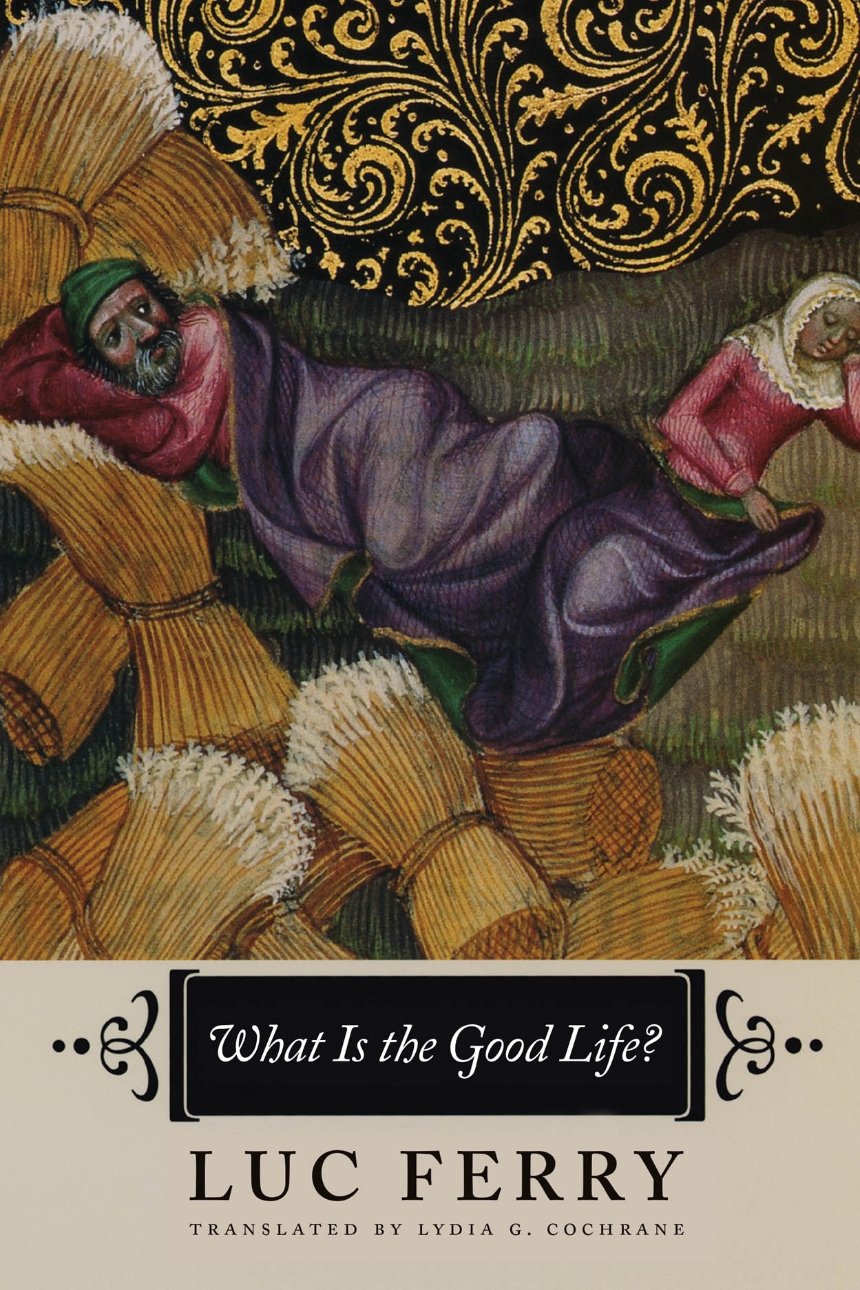What Is the Good Life?
Has inquiry into the meaning of life become outmoded in a universe where the other-worldiness of religion no longer speaks to us as it once did, or, as Nietzsche proposed, where we are now the creators of our own value? Has the ancient question of the "good life" disappeared, another victim of the technological world? For Luc Ferry, the answer to both questions is a resounding no.
In What Is the Good Life? Ferry argues that the question of the meaning of life, on which much philosophical debate throughout the centuries has rested, has not vanished, but at the very least the question is posed differently today. Ferry points out the pressures in our secularized world that tend to reduce the idea of a successful life or "good life" to one of wealth, career satisfaction, and prestige. Without deserting the secular presuppositions of our world, he shows that we can give ourselves a richer sense of life’s possibilities. The "good life" consists of harmonizing life’s different forces in a way that enables one to achieve a sense of personal satisfaction in the realization of one’s creative abilities.
In What Is the Good Life? Ferry argues that the question of the meaning of life, on which much philosophical debate throughout the centuries has rested, has not vanished, but at the very least the question is posed differently today. Ferry points out the pressures in our secularized world that tend to reduce the idea of a successful life or "good life" to one of wealth, career satisfaction, and prestige. Without deserting the secular presuppositions of our world, he shows that we can give ourselves a richer sense of life’s possibilities. The "good life" consists of harmonizing life’s different forces in a way that enables one to achieve a sense of personal satisfaction in the realization of one’s creative abilities.
Reviews
Table of Contents
Prologue - Our Daydreams: Success, Ennui, and Envy
Part I - Creating the Good Life: Metamorphoses of the Ideal
1. Beyond Morality, After Religion
The New Age of the Question
2. The Meaning of the Question and the Slow Humanization of the Responses
Part II - The Nietzschean Moment: The Good Life as the Most Intense Life
3. On Transcendence as Supreme Illusion
The Twilight of the Idols, or How to Philosophize with a Hammer: The End of the World, the Death of God, and the Death of Man
4. The Foundations and Arguments of Nietzschean Materialism
5. The Wisdom of Nietzsche, or The Three Criteria of the Good Life
Truth in Art, Intensity in the Grand Style, Eternity in the Instant
6. After Nietzsche
Four Versions of Life after the Death of God: Daily Life, the Bohemian Life, the Life of Enterprise, or Life Freed from Alienation
Part III - The Wisdom of the Ancients: Life in Harmony with the Cosmic Order
7. Greek Wisdom, or The First Image of a Lay Spirituality
The Secularization of Salvation
8. The "Cosmologico-Ethical"
Power and the Charms of Moralities Inscribed in the Cosmos
9. An Ideal-Type of Ancient Wisdom
The Case of Stoicism
Part IV - The Here and Now Enchanted by the Beyond
10. Death Finally Conquered by Immortality
Philosophy Replaced by Religion
11. The Renascence of Lay Philosophy and the Humanization of the Good Life
Part V - A Humanism of the Man-God: The Good Life as a Life in Harmony with the Human Condition
12. Materialism, Religion, and Humanism
13. A New Approach to the Question of Happiness
Notes
Index
Part I - Creating the Good Life: Metamorphoses of the Ideal
1. Beyond Morality, After Religion
The New Age of the Question
2. The Meaning of the Question and the Slow Humanization of the Responses
Part II - The Nietzschean Moment: The Good Life as the Most Intense Life
3. On Transcendence as Supreme Illusion
The Twilight of the Idols, or How to Philosophize with a Hammer: The End of the World, the Death of God, and the Death of Man
4. The Foundations and Arguments of Nietzschean Materialism
5. The Wisdom of Nietzsche, or The Three Criteria of the Good Life
Truth in Art, Intensity in the Grand Style, Eternity in the Instant
6. After Nietzsche
Four Versions of Life after the Death of God: Daily Life, the Bohemian Life, the Life of Enterprise, or Life Freed from Alienation
Part III - The Wisdom of the Ancients: Life in Harmony with the Cosmic Order
7. Greek Wisdom, or The First Image of a Lay Spirituality
The Secularization of Salvation
8. The "Cosmologico-Ethical"
Power and the Charms of Moralities Inscribed in the Cosmos
9. An Ideal-Type of Ancient Wisdom
The Case of Stoicism
Part IV - The Here and Now Enchanted by the Beyond
10. Death Finally Conquered by Immortality
Philosophy Replaced by Religion
11. The Renascence of Lay Philosophy and the Humanization of the Good Life
Part V - A Humanism of the Man-God: The Good Life as a Life in Harmony with the Human Condition
12. Materialism, Religion, and Humanism
13. A New Approach to the Question of Happiness
Notes
Index
